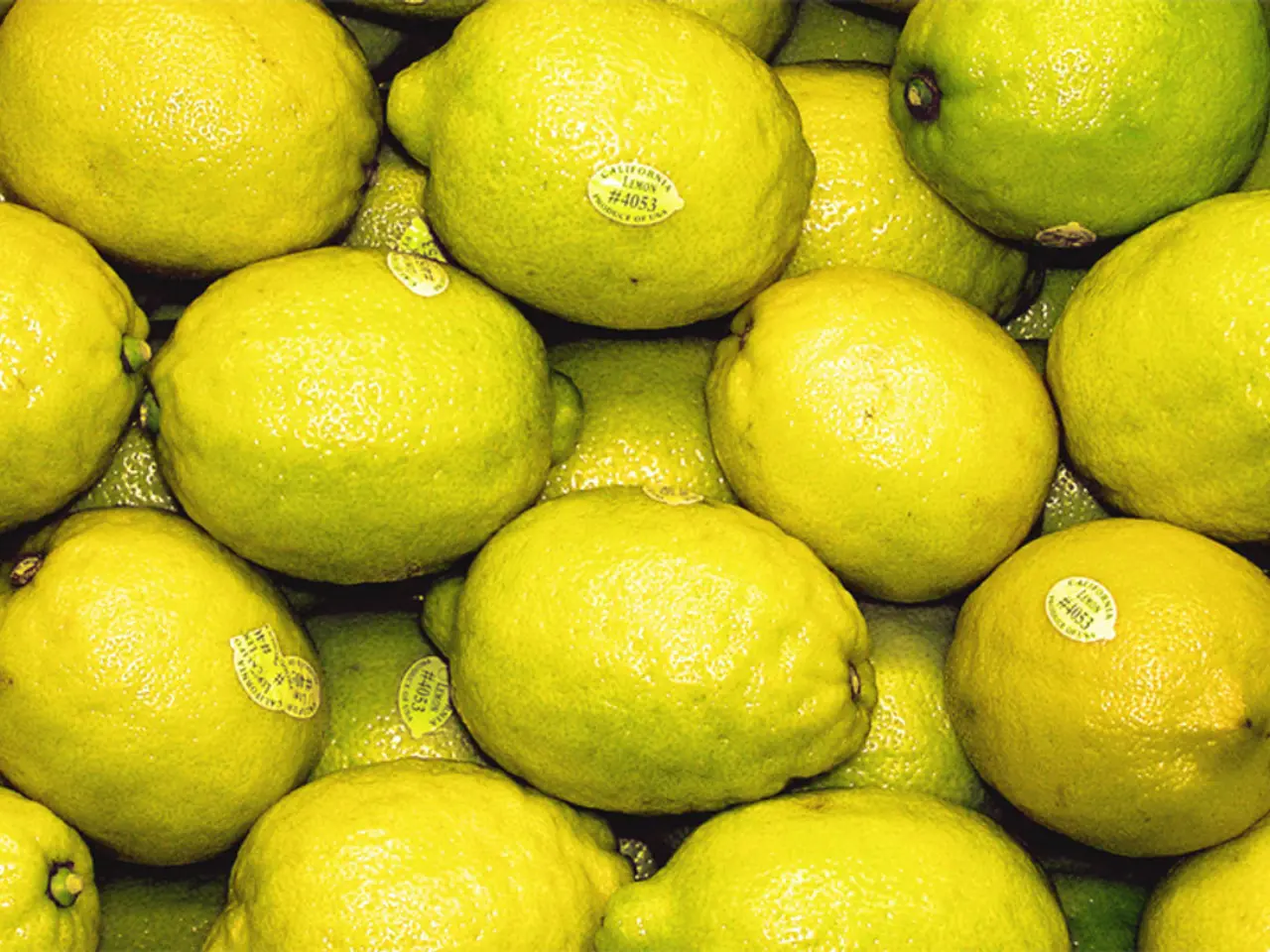International citrus industry seeks guidance from G20 amidst American policy doubts
South Africa's citrus industry, a significant contributor to the country's economy and employment, is currently grappling with a 30% tariff imposed by the United States. This tariff, according to Dr. Boitshoko Ntshabele, CEO of the Citrus Growers' Association (CGA), poses a significant threat to the industry and the rural communities heavily dependent on citrus exports, particularly to the US.
The CGA is responding to this challenge in several strategic ways. Firstly, they are actively lobbying for tariff relief or an exemption, engaging both South African and US governments in dialogue. They argue that South African citrus arrives in the US off-season for domestic production, extending consumer availability without harming US growers.
Secondly, South African citrus farmers are expediting shipments before the tariff implementation to maintain market presence and revenue within the current season.
Thirdly, the CGA, along with South African government leaders, is emphasising the non-competitive and complementary nature of South African citrus to the US market. They stress that South African citrus production does not threaten US growers but rather supplements US markets due to its counter-seasonal nature and longstanding trade complementarities under AGOA (African Growth and Opportunity Act).
The CGA is also focusing on developing new markets such as South East Asian countries, India, South Korea, and Japan. They are working on deepening market access in countries where South Africa already has markets, including China.
The CGA is hopeful that South Africa's hosting of the G20 summit can counter this threat. Dr. Ntshabele believes that the summit provides an opportunity to leverage South Africa's role as host to build diplomatic momentum and fast-track efforts to broaden market access for South Africa's fresh produce.
The CGA is calling for public-private partnerships and strategic diplomacy during the G20 summit. They believe that collaboration with ministers from 19 countries during the G20 summit can lead to bilateral market access improvements.
The citrus industry, with its potential for growth and job creation, could play a crucial role in tackling South Africa's rising unemployment. The industry is on a growth trajectory, with projections of exporting 260 million 15kg cartons by 2032, which could create 100 000 jobs. However, the 30% reciprocal US export tariff could impact this outlook.
While no direct new policy measures linked explicitly to the G20 summit are reported, the summit places South Africa’s trade challenges and economic diplomacy at the center of global attention, creating an impetus for intensified negotiations and showcasing South Africa’s critical role in international trade. The timing likely reinforces South Africa's urgency in resolving tariff disputes diplomatically to protect one of its vital agricultural exports.
In summary, South Africa’s citrus industry strategy centers on diplomatic engagement for tariff relief, shipment acceleration pre-tariff, reinforcing industry-government alignment on the economic importance of citrus exports, and leveraging international attention around the G20 summit for favorable outcomes in trade relations with the US.
- The Citrus Growers' Association (CGA) is engaging both South African and US governments in dialogue, aiming to secure tariff relief or an exemption for the South African citrus industry, as it contends that South African citrus extends consumer availability without harming US growers in the off-season.
- The South African citrus industry, a significant contributor to employment and business, is seeking new markets such as South East Asian countries, India, South Korea, and Japan in response to the 30% reciprocal US export tariff, with the aim of deepening market access in countries where South Africa already has markets, including China.




